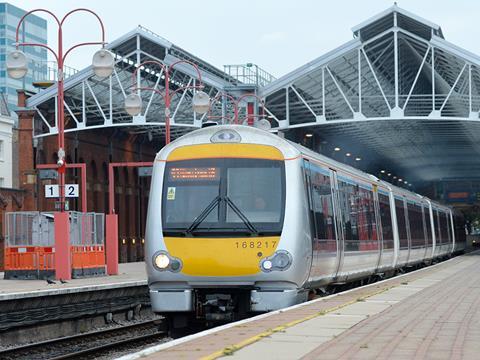
UK: Arriva announced on December 3 that it had agreed a six-year National Rail Contract with the government for its Chiltern Railways operation covering routes to and from London Marylebone.
Coming into force from December 31, the NRC will see the Department for Transport taking all revenue and cost risk and paying Arriva a fixed management fee to run Chiltern services. It will also give the operator an ‘opportunity to earn an additional performance-based fee’, the company explained.
Arriva said the contract would allow it to ‘accelerate a path to decarbonisation’, drawing on its ‘extensive experience’ of alternative traction in Europe, including the operation of tri-mode electro-diesel battery multiple-units in the Netherlands.
With little prospect of the Chiltern Main Line being electrified in the medium term, Chiltern Railways has been facing mounting pressure over noise emissions from its diesel fleet, especially around Marylebone, which is the last purely diesel-operated main line terminus in the capital. Earlier this year it unveiled a prototype HybridFLEX multiple-unit fitted with a hybrid traction system; this is intended to offer ‘zero emissions and near silent operation’ at stations and in other sensitive locations.
‘Today’s news is very much welcomed’, commented David Brown, Managing Director of Arriva UK Trains. ‘The agreement reflects the partnership which has been established with government and I’m optimistic about the on-going and strategic contribution Arriva Group can make to rail reform and the delivery of a new era for passengers.
‘Rail plays a vital role in the re-building of the economy and the decarbonisation agenda. We have a strong track record of growth and efficient operation, and we will continue to provide cost-effective solutions to some of the big challenges the country faces as it builds out of the pandemic. Foremost among these is working in partnership to drive cost efficiencies, attract more passengers to rail, helping to fuel economic growth and tackling climate change.’



